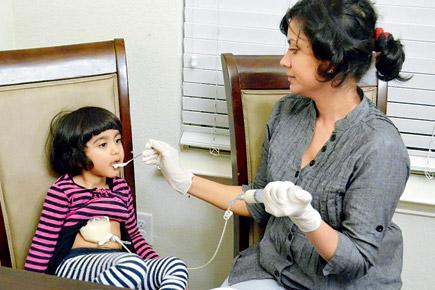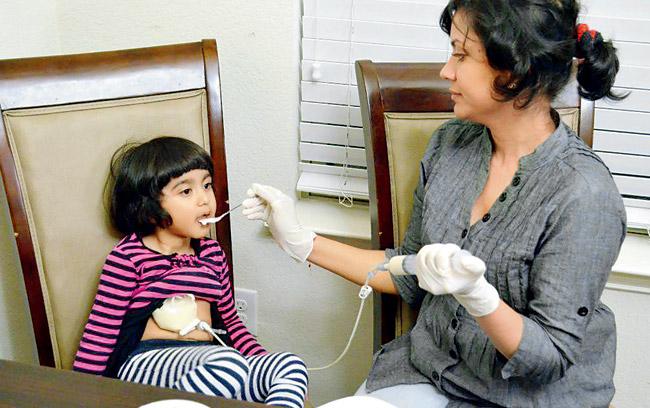After 20 surgeries in Australia, 30-yr-old wants US hospital to carry out Foker procedure on 3-yr-old daughter suffering from rare oesophagus condition. Mumbai docs say graft is a better option

The case of Sydney-based Sweety Makwana’s three-year-old daughter Twisha, who was born with a rare congenital defect, has drawn the attention of Mumbai doctors.
ADVERTISEMENT

Twisha suffers from Long Gap Esophageal Atresia, which makes it impossible for her to eat through her mouth
Twisha was born with Long Gap Esophageal Atresia, a condition where there is a gap between the oesophagus (food pipe) and stomach, which makes it impossible for her to eat with her mouth. After 20 unsuccessful surgeries in Australia, the 30-year-old mother hopes to get her daughter to undergo the Foker procedure, in which doctors conduct a continuous traction on the esophagus to induce esophageal growth. This surgery is conducted at the Boston Children Hospital in the US and costs $1.2 million.
“The alternate treatment available in Australia involves grafting a portion of her small intestine and I don’t want to take the risk,” added Makwana, who is financially supported by the Australian government. The single mother has raised Rs 1.3 crore for the treatment but needs at least Rs 6 crore more for the surgery. “After my plight was highlighted in newspapers in Boston, Australia and Gujarat, I began to receive donations.
I want Twisha to start living without tubes attached to her torso,” added Makwana, who presently injects Formula milk into Twisha’s stomach with a tube. Makwana, whose husband left her soon after her daughter’s birth, told sunday mid-day over the phone from Sydney, “The food she eats through her mouth, to learn how to use her jaw muscles is drained through a hole in her chest, which the doctors dilate almost twice a week.”
City doctors speak
According to Mumbai doctors, there are cheaper procedures to treat the child without any further damage to her organs. Dr Paras Kothari, head of the paediatrics surgery department at Sion Hospital, said, “It is difficult to say why this patient had to undergo 20 surgeries. I have been conducting a study on Long Gap Esophageal Atresia.
We have successfully treated three patients using a procedure where a portion of the stomach is used to make a tube to connect the neck to the stomach. Foker procedure is not necessarily a superior form of treatment.”
In India, Long Gap Esophageal Atresia occurs to one in 5,000 and is quite common. “Complications or medical negligence could have worsened the child’s condition. It is difficult to comment unless we get to study her medical records,” said Dr Pankaj Shastri, consultant paediatric surgeon at Kohinoor Hospital.
To donate, log on to www.twishamakwana.com
 Subscribe today by clicking the link and stay updated with the latest news!" Click here!
Subscribe today by clicking the link and stay updated with the latest news!" Click here!






